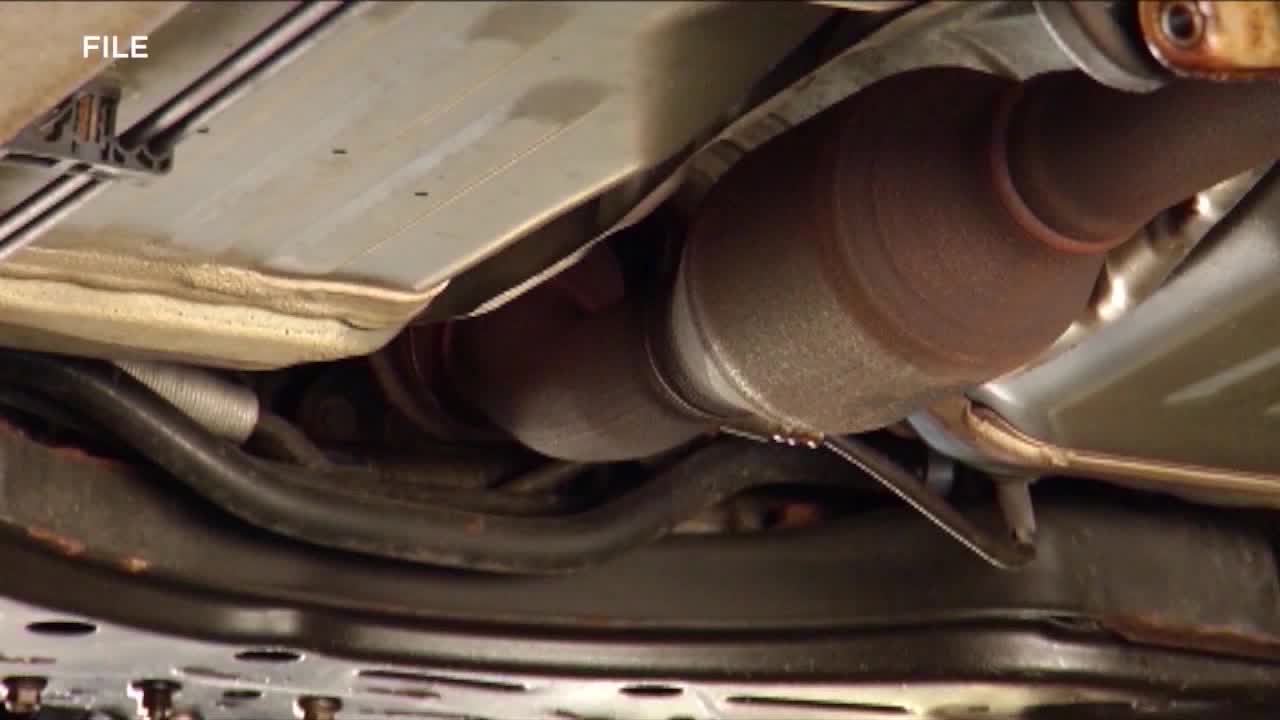Hutchinson man pleads guilty to role in multi-million dollar catalytic converter theft ring

A Minnesota man who sold $21 million worth of stolen catalytic converters pleaded guilty Tuesday in federal court.
John C. Kotten, of Hutchinson, admitted to one count of conspiracy to transport stolen goods interstate after prosecutors say he spent two years buying, selling and transporting the stolen car parts. Kotten, along with others he worked with, sold $19 million worth of stolen catalytic converters to out-of-state buyers alone, according to prosecutors.
Last month, two other Minnesota men pleaded guilty to conspiracy and gun crimes related to the theft ring.
Catalytic converters theft surged across the country, largely because of the growing market for precious metals like platinum, palladium and rhodium. In Bloomington alone, police tracked nearly 450 thefts in 2022.
Kotten was indicted in October 2023 after authorities say he received money from a New Jersey-based business that was at the center of a national crackdown on the stolen catalytic converter trade.
Kotten’s attorney, Joe Tamburino, declined to comment about the plea.
Between May 2020 and September 2022, Kotten bought stolen car parts from both street-level cutters and intermediaries, then would use a U-Haul to transport them outside Minnesota, according to court documents.
Kotten admitted to using his business as a front to purchase cars from individual sellers or from auctions. Court documents show even lawful purchases were used to “protect the conspiracy from detection.”
After his arrest, authorities seized hundreds of catalytic converters from Kotten’s property in Hutchinson, along with hundreds more in Sleepy Eye, St. Paul and Madison Lake.
Kotten faces up to six years in prison.
As 5 INVESTIGATES reported last year, catalytic converter thefts started dropping in Minnesota and across the country around the same time of the federal takedown, according to state and national data.
RELATED: Minnesota anticipated current wave of auto thefts. Then lawmakers scrapped a tool to fight it.
In August, the Minnesota Bureau of Criminal Apprehension rolled out a new statewide database to track certain purchases at scrap yards. As 5 INVESTIGATES previously reported, the state attempted to launch a similar database a decade ago before the Legislature nixed the plan.
The two-year $190,000 contract highlights the ability of the BCA to “maintain a list of suspicious sellers.”

